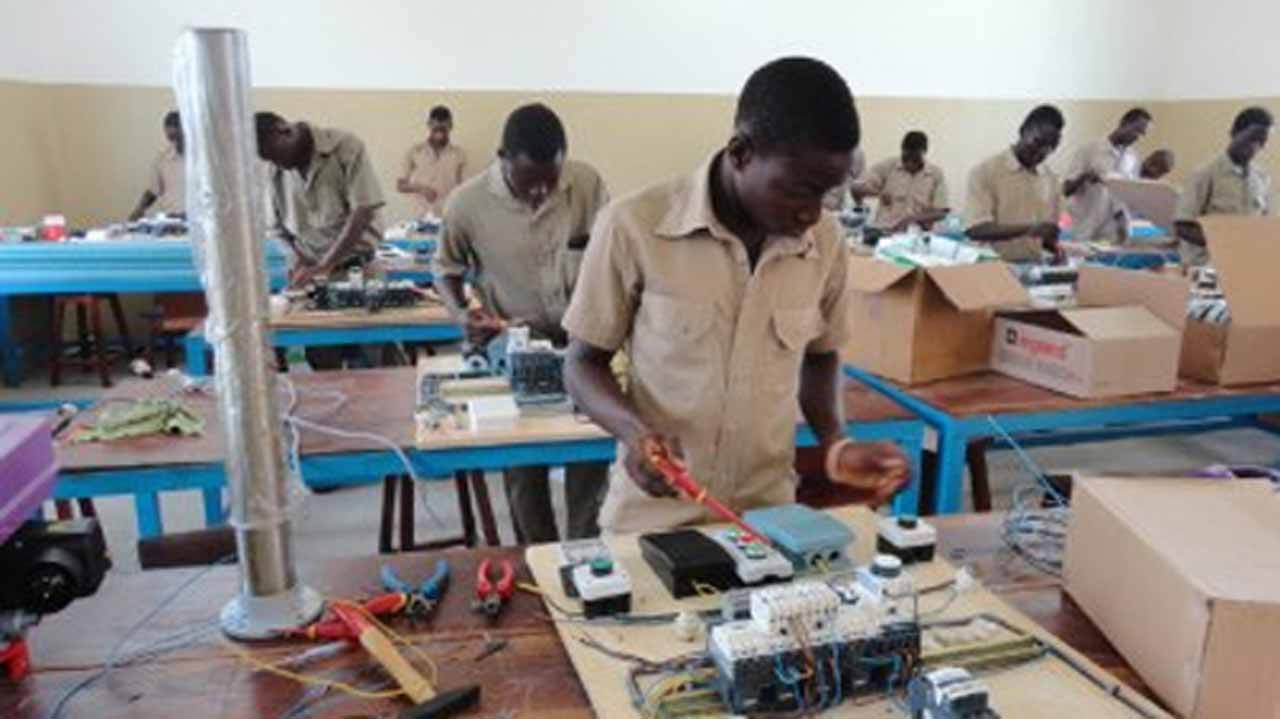The House committee on alternative education has emphasised the urgent need to empower Nigerian youths through structured vocational and entrepreneurial training

The House of Representatives has taken a bold step to combat youth unemployment through structured alternative education, as it began deliberations on a bill seeking to establish vocational and skills training centres in all 774 local government areas of Nigeria.
Speaking at a maiden public hearing on the proposed legislation recently, Chairman of the House committee on alternative education, Rep. Ibrahim Almustapha (APC Sokoto), underscored the urgency of empowering Nigerian youths with entrepreneurial and vocational skills.
“This initiative is a commitment to the future of our nation,” Almustapha said. “In a world rapidly evolving through technology and shifting market demands, it is imperative that we equip our young people with the skills needed to thrive. Establishing these centres is not just a policy drive; it is a national imperative.”
The public hearing, held at the national assembly complex, featured deliberations on nine related bills, including:
- The National Institute for Technical and Vocational Education, Kalgo (Kebbi State)
- HB.736: Establishment of Vocational Training Centres in all 774 LGAs
- Federal College of Entrepreneurship and Skills Acquisition, Maiduguri (Borno State)
- Federal Vocational and Entrepreneurship Training Centre, Mallam Madori (Jigawa State)
- Federal Technical and Vocational Training Center, Aba (Abia State)
- Federal Vocational Training Center, Riyom (Plateau State)
- Federal College of Entrepreneurship and Skills Acquisition, Bunza (Kebbi State)
- Federal College of Entrepreneurship and Skills Acquisition, Ntigha (Abia State)
- National Vocational and Entrepreneurship Institute, Jos (Plateau State)
According to Almustapha, these centres would serve as vehicles for equipping Nigerians especially those without formal primary, secondary, or tertiary education with practical, income-generating skills, promoting self-reliance and contributing to national economic growth.
He praised Speaker of the House, Rep. Abbas Tajudeen, for establishing the committee on alternative education, describing it as a visionary move toward closing institutional gaps in non-formal education and training.
“Our committee is not only focused on building this sector into a sustainable source of economic growth,” Almustapha said, “but also on establishing institutions that impart knowledge and skills to strengthen the nation through progressive legislation.”
He stressed that the public hearing was essential to ensuring that stakeholders including educators, government officials, civil society, and industry leaders have their voices heard in the legislative process.
“This platform allows us to hear directly from those who will benefit from these bills. We must work together to ensure that the proposed legislation is inclusive and responsive to the diverse needs of our country,” he urged.
Also speaking at the event, Speaker Abbas, represented by Rep. Alexander Mascot, reaffirmed the House’s commitment to empowering Nigerian youths through alternative education. He emphasised the importance of vocational training and entrepreneurship to national growth.
“In today’s world, vocational and entrepreneurial skill acquisition is the foundation for economic progress,” the speaker stated. “Nigeria is blessed with a youthful population eager to learn and contribute, but our current vocational sector has yet to yield the desired outcomes.”
The speaker assured that the House would continue to provide legislative support for initiatives that promote youth empowerment and self-reliance.
Rep. Emeka Ikwechegh (APGA Abia), called for the release of funds to revitalise existing vocational centres, many of which are currently underfunded and underutilised.
Chairman of the House Committee on Financial Crimes, Rep. Ginger Onwusibe (APC Abia), cautioned that while vocational centres are vital, their relevance must be evaluated per community need. “Let’s critically assess where and how these centres can best serve the people,” he said.
Describing the bill as one of the most significant in the 10th Assembly, Rep. Olatunji Akinosi (APC Ogun), argued that Nigeria must shift from its obsession with certificates to valuing technical competence.
“Nations we admire China, Germany, the U.S. emphasise practical skills over academic credentials,” he noted. “It’s time Nigeria did the same.”
Other lawmakers and stakeholders echoed strong support for the bills, expressing optimism that their eventual passage would strengthen Nigeria’s industrialisation agenda and bridge the gap between education and employment.

